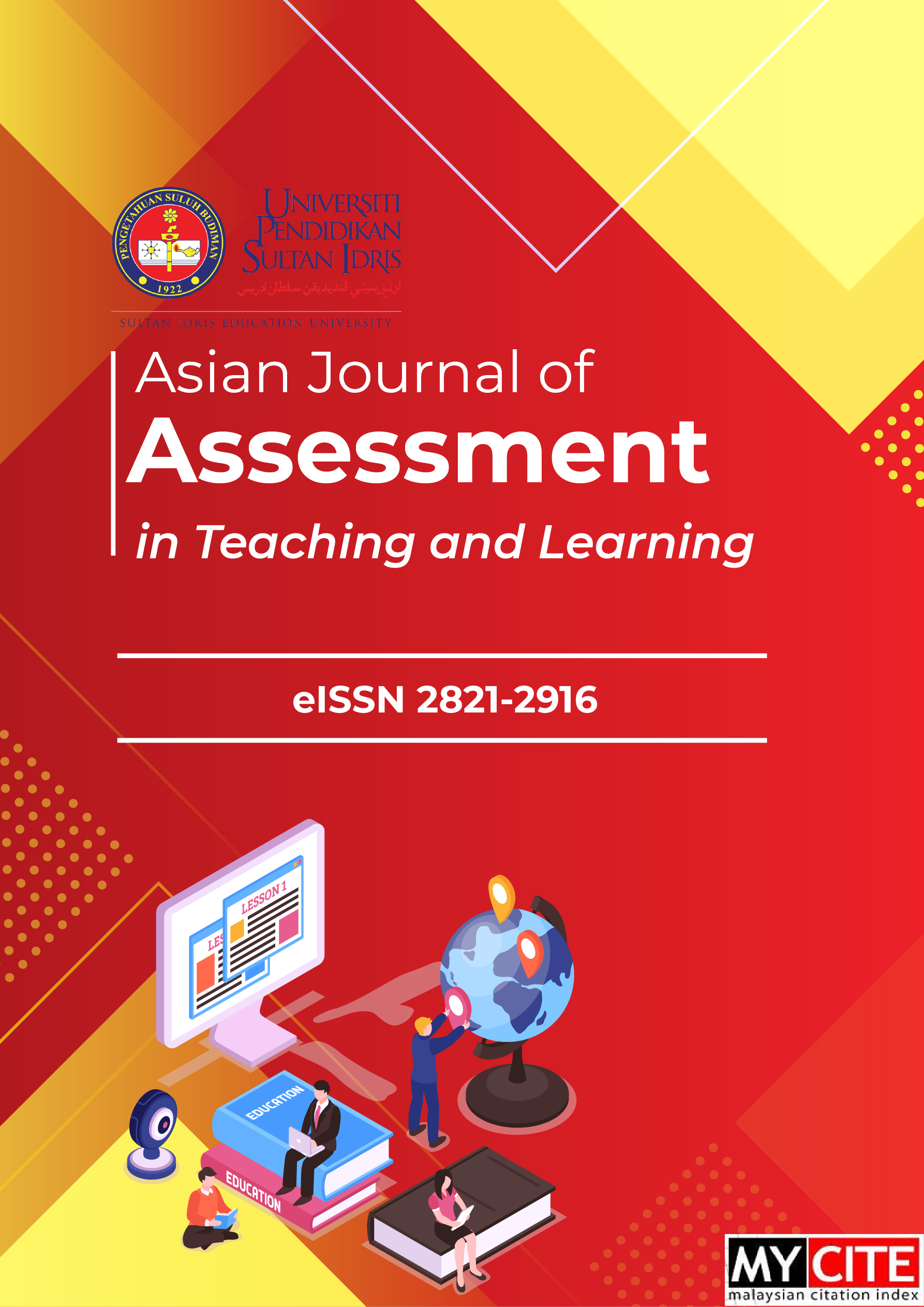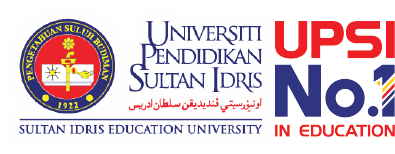The Influence of Jigsaw and Mind Mapping Type of Learning Models on Natural Science Outcomes in Elementary School
DOI:
https://doi.org/10.37134/ajatel.vol12.2.2.2022Keywords:
Influence, jigsaw, mind mapping, natural science, learning outcomes, elementary schoolAbstract
The results of the study are: 1) There is an effect of the jigsaw type learning model on the Science Learning Outcomes of Class VI in Elementary Schools, this is based on the paired samples test value obtained Sig. (2-tailed) of 0.000 <0.05, or t-count 9.633 > t-table 2.04841, 2) There is an effect of the mind mapping type model on the Science Learning Outcomes of Class VI in Elementary Schools, this is based on the results of the paired samples test obtained the value of Sig. (2-tailed) of 0.000 < 0.05, or t-count 20,602 > t-table 2,05954, 3) There is a difference in the effect of the jigsaw and mind mapping learning models on science learning outcomes for Grade VI in elementary schools. Experiment 1 using the jigsaw learning model got a mean value of 80.44 and experiment 2 using the mind mapping model got a mean value of 90.37. Thus, the influence of the mind mapping learning model is better than the jigsaw learning model.
Downloads
References
Alsubaie, M. A. (2016). Curriculum development: Teacher involvement in curriculum development. Journal of Education and Practice, 7(9), 106-107.
Amin, S., Murtono, Madjdi, A. H., Ardianti, S. D., & Gung, Y. T. (2021). The Effect of Discovery Learning on Science Learning Achievements for Elementary School Students. Asian Pendidikan, 1(2), 54-58. https://doi.org/10.53797/aspen.v1i2.9.2021
Arka, I. W. (2020). Pengembangan Model Pembelajaran Inovatif Berbasis Kompetensi. Widyacarya: Jurnal Pendidikan, Agama dan Budaya, 4(2), 54-63.
Arkorful, V., & Abaidoo, N. (2015). The role of e-learning, advantages and disadvantages of its adoption in higher education. International journal of instructional technology and distance learning, 12(1), 29-42.
Astawa, D. N. W. (2019). Influence of mind mapping method implementation on learning results social science is required from students interest. International research journal of management, IT and social sciences, 6(3), 94-100.
Atilla, C. I. (2012). What makes biology learning difficult and effective: Students’ views. Educational research and reviews, 7(3), 61-71.
Baeten, M., & Simons, M. (2014). Student teachers' team teaching: Models, effects, and conditions for implementation. Teaching and Teacher Education, 41, 92-110.
Darusman, R. (2014). Penerapan metode mind mapping (peta pikiran) untuk meningkatkan kemampuan berpikir kreatif matematik siswa SMP. Infinity Journal, 3(2), 164-173.
Fadliyani, F., Muhibbuddin, M., & Sarong, M. A. (2018). Pembelajaran Kooperatif Tipe Jigsaw Pada Konsep Sistem Pencernaan Makanan Manusia Terhadap Hasil Belajar Siswa SMA Negeri 1 Sakti Kabupaten Pidie. BIOTIK: Jurnal Ilmiah Biologi Teknologi dan Kependidikan, 2(1), 17-22.
Fatmawati, S. E. (2019). The Application of jigsaw and mind mapping to increase student’s learning result. Classroom Action Research Journal (CARJO), 2(1), 24-29.
Fauzia, M. Y., & Purwantoyo, E. (2015). Efektivitas strategi mencatat kreatif mind mapping untuk meningkatkan daya ingat siswa SMP Islam Cepu pada materi keanekaragaman makhluk hidup. Journal of Biology Education, 4(2).
Gillies, R. M. (2016). Cooperative learning: Review of research and practice. Australian Journal of Teacher Education (Online), 41(3), 39-54.
Halim, A., & Syahrun, N. (2020, February). Application of jigsaw type cooperative learning to improve student creative thinking skills. In Journal of Physics: Conference Series (Vol. 1460, No. 1, p. 012142). IOP Publishing.
Hanik, E. U. (2015). Pembelajaran Inovatif Ipa Di Sd/Mi Berorientasi Konstruktivistik (Contextual Teaching And Learning). AKADEMIKA, 9(2).
Ifa, M. (2013). Penerapan model pembelajaran kooperatif tipe jigsaw untuk meningkatkan hasil belajar siswa kelas X SMK Negeri 3 Boyolangu pada standar kompetensi menerapkan keselamatan dan kesehatan kerja (k3). Jurnal Pendidikan Teknik Elektro, 2(2).
Johnson, D. W., & Johnson, R. T. (2018). Cooperative learning: The foundation for active learning. Active learning—Beyond the future.
Isjoni, H. (2014). Cooperative learning mengembangkan kemampuan belajar berkelompok. Bandung: Alfabet.
Jessica, N. M. N. A., Suarjana, I. M., & Suwatra, I. I. W. (2014). Pengaruh Model Pembelajaran Kooperatif Tipe Jigsaw Terhadap Hasil Belajar IPA Siswa Kelas VI SD Negeri 6 Dauh Waru Negara Kabupaten Jembrana. MIMBAR PGSD Undiksha, 2(1).
Kitagawa, T. (2015). A test for instrument validity. Econometrica, 83(5), 2043-2063.
Listyawati, N. W., Suarjana, M., & Sudana, D. N. (2013). Pengaruh model pembelajaran kuantum berbantuan peta pikiran terhadap kemampuan berpikir kritis siswa pada pembelajaran IPA kelas V SD. Mimbar PGSD Undiksha, 1(1).
Maciejewski, M. L. (2020). Quasi-experimental design. Biostatistics & Epidemiology, 4(1), 38-47.
Namey, E., Guest, G., O’Regan, A., Godwin, C. L., Taylor, J., & Martinez, A. (2021). How does qualitative data collection modality affect disclosure of sensitive information and participant experience? Findings from a quasi-experimental study. Quality & Quantity, 1-20.
Nopiyanto, Y. E., Sutisyana, A., Raibowo, S., & Yarmani, Y. (2021). Blended learning with jigsaw in increasing interest, motivation, and learning outcomes in sports sociology learning. Kinestetik: Jurnal Ilmiah Pendidikan Jasmani, 5(1), 26-34.
Nurhaeni, Y. (2011). Meningkatkan pemahaman siswa pada konsep listrik melalui pembelajaran kooperatif tipe jigsaw pada siswa kelas IX SMPN 43 Bandung. Jurnal Penelitian Pendidikan, 12(1), 77-89.
Rosyidah, A. (2015). Penerapan Pembelajaran Kooperatif Tipe Jigsaw Dengan Teknik Mind Mapping untuk Meningkatkan Aktivitas dan Hasil Belajar IPS di kelas Via SDN Krecek 1 Kecamatan Badas Kabupaten Kediri. Jurnal Review Pendidikan Dasar: Jurnal Kajian Pendidikan dan Hasil Penelitian, 1(1), 66-70.
Saputra, M. D., Joyoatmojo, S., Wardani, D. K., & Sangka, K. B. (2019). Developing critical-thinking skills through the collaboration of jigsaw model with problem-based learning model. International Journal of Instruction, 12(1), 1077-1094.
Shi, Y., Ma, Y., MacLeod, J., & Yang, H. H. (2020). College students’ cognitive learning outcomes in flipped classroom instruction: a meta-analysis of the empirical literature. Journal of Computers in Education, 7(1), 79-103.
Slamet, Suad, Madjdi, A. H., Arsyad Fardani, & Gung, Y. T. (2021). The Effect of Discovery Model on The Science Learning Outcomes of Class V Elementary School Students in The Wijayakusuma Cluster. Asian Pendidikan, 1(2), 47-53. https://doi.org/10.53797/aspen.v1i2.8.2021
Stanczak, A., Darnon, C., Robert, A., Demolliens, M., Sanrey, C., Bressoux, P., ... & Butera, F. (2022). Do jigsaw classrooms improve learning outcomes? Five experiments and an internal meta-analysis. Journal of Educational Psychology.
Sudrajat, A., Iasha, V., & Femayati, F. (2018). The Influence of the Use of Cooperative Learning Model Jigsaw & Two Stay Two Stray and the Learning Interest Result on 5th Grade Social Science. ICEAP 2019, 2, 28-33.
Taherdoost, H. (2016). Validity and reliability of the research instrument; how to test the validation of a questionnaire/survey in a research. How to test the validation of a questionnaire/survey in a research (August 10, 2016).
Triyanti, Murtono, & Sri, U. (2021). Problem Based Technology and Science Development to Improve Science Learning Outcomes in Elementary Schools. ANP Journal of Social Science and Humanities , 2(2), 151-156. https://doi.org/10.53797/anp.jssh.v2i2.21.2021
Trisianawati, E., Djudin, T., & Setiawan, R. (2016). Pengaruh model pembelajaran kooperatif tipe jigsaw terhadap hasil belajar siswa pada materi vektor di kelas X SMA Negeri 1 Sanggau Ledo. Jurnal Penelitian Fisika Dan Aplikasinya (JPFA), 6(2), 51-60.
Widiana, I. N. A., Murda, I. N., & Margunayasa, I. G. (2015). Pengaruh Model Pembelajaran Kooperatif Tipe Jigsaw 1 Dengan Bantuan Media Konkret Terhadap Hasil Belajar Ipa Kelas V Di SD Gugus XIV, Kecamatan Buleleng Tahun Pelajaran 2014/2015. MIMBAR PGSD Undiksha, 3(1).
You, S. E., & Son, H. C. (2016). A study on the effect of applying jigsaw cooperative learning on mathematical affective characteristics of vocational high school students. Journal of the Korean School Mathematics Society, 19(3), 309-328.
Downloads
Published
How to Cite
Issue
Section
License
Copyright (c) 2022 Durokhim Durokhim, Utaminingsih Utaminingsih, Widjanarko Widjanarko

This work is licensed under a Creative Commons Attribution-NonCommercial-ShareAlike 4.0 International License.





